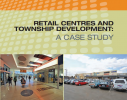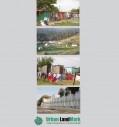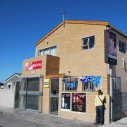Location
The Knowledge Exchange is a response to an identified need for increased information exchange in the Southern African region. It has been developed as a broad collaboration of partners, with the CSIR acting as the custodian.
The purpose of the Urban Knowledge Exchange is to improve the delivery of better quality human settlements, towns and cities by making reliable, evidence-based knowledge more widely accessible. It encompasses thematic areas such as sustainable human settlement development and management, better infrastructure and services, access to well-located land, efficient shelter production, a more functional residential property market, improved transport networks, more equitable urban development, good governance, building resilience and responding to climate change, and promoting more affordable housing finance.
The knowledge repository is devoted to promoting innovation and good practice for cities, towns, and villages through offering links to an online library, knowledge directory, upcoming events, moderated debates, portal (links to further hubs), and content uploading facility. With the aim to collaborate with existing platforms on various locational scales the project will further provide opportunities for global information sharing.
Members:
Resources
Displaying 16 - 20 of 45Retail centres and township development
This case study is based on an existing booklet, Retail Centres and Township Developments: A Case Study (SACN, 2010) published by the South African Cities Network (SACN), the Training for Township Renewal Initiative (TTRI) and National Treasury. The booklet draws on prior research on
The financing of city services in Southern Africa
This case study draws on research that investigated the financial sustainability of cities in the Southern African region. The research was undertaken by the South African Cities Network (SACN). The project was jointly sponsored by the Public Private Infrastructure Advisory Facility and the World Bank. The contribution by SACN of the material for this document is gratefully acknowledged. The learning material presents an outline of the many challenges of financial sustainability and effective service delivery facing Southern African cities.
Land governance in South Africa
The World Bank in 2010/11 undertook an in-depth review of land governance and land policy in South Africa, with Urban LandMark managing the process and implementing a Land Governance Assessment Framework (LGAF) for South Africa.
Angola and informal land tenure arrangements
This case study draws on research that investigated the extensive informal land market in Luanda, Angola. It examines how urban land is transacted and the mechanisms by which it is secured and regulated. The case study is based on research undertaken by
A long way home
This working paper by Tikvah Breimer previously of the Institute for Housing and Urban Development Studies (IHS) and Mark Napier previously of Urban LandMark, analyses the provision of core housing in Khayelitsha, Cape Town, specifically taking into account the residents' response to the state's delivery of core housing. It aims to explore to what extent the South African government's approach to providing large-scale housing addresses the relevant demands in the context of rapid urbanisation.







